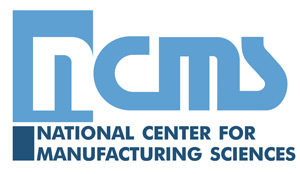NCMS, LIFT, APLU Release New Set of Recommendations to Prepare Higher Education Students for Lightweight Manufacturing Advancements
NCMS leadership worked with APLU and LIFT to establish a second report with recommendations on Aligning Technology and Talent Development.
College & University Faculty Team Recommends Paths to Building Competencies and Workforce Strategies for New Lightweighting Technologies
DETROIT – A new report from leading higher education and workforce experts details a second set of recommendations for colleges and universities to modify current curricula to reflect the knowledge and skills necessary for manufacturing jobs encompassing new lightweighting technologies, materials, and processes.
Designed to align industry workforce needs with educational strategies, the second report in the series focuses on approaches both two-year and four-year institutions can implement to develop competencies in emerging lightweighting technology areas including thin-wall ductile iron castings; powder consolidation processes; agile sheet metal fabrication; and nanoparticle reinforced aluminum. Through lightweighting, industries from automotive and aerospace to shipbuilding and defense can reduce weight and energy consumption by developing more efficient processes and designs, as well as using lighter materials.
The report was crafted by an Expert Educator Team (EET) of college and university faculty who are experts in both materials science and education and workforce preparation. The team was assembled by LIFT – Lightweight Innovations for Tomorrow, the Association of Public and Land-grant Universities (APLU), and the National Center for Manufacturing Sciences (NCMS).
Some highlights of recommendations made by the EET are:
Thin Wall Ductile Iron Castings Education and Workforce Development
- Develop an education and training network among hands-on casting sites and foundries at colleges and universities.
- Develop faculty training materials that can also be embedded into existing courses.
- Encourage training in physical metallurgy, solidification and casting, and foundry operations.
Powder Consolidation Education and Workforce Development
- Develop a problem-based learning design playbook.
- Implement an education and training network among powder consolidation facilities at colleges and universities.
Agile Sheet Fabrication Metal Fabrication Education and Workforce Development
- Utilize online videos and webinars to communicate the value of incremental forming.
Nanoparticle Aluminum Education and Workforce Education
- Develop evidence-based education for nanoparticle reinforced aluminum.
The EET also had the following recommendations for leveraging LIFT’s current education and workforce infrastructure:
- Develop an integration toolkit to help faculty make use of LIFT Learning Hub materials.
- Convene a curriculum development summit with deans and department heads.
- Develop a certification-focused continuing education program for incumbent workers.
“These emerging technologies are being developed and implemented today, so it is critical we provide our colleges and universities with recommendations to better prepare their students to work with them,” said Jim Woodell, vice president for economic development and community engagement, APLU.
“The closer we can bring students at our colleges and universities to real-world, hands-on experiences, in the newest technologies and processes, the better prepared they will be for the workforce upon graduation,” said Rebecca Taylor, senior vice president, NCMS.
The six EET members were selected from APLU’s member universities and other LIFT university research partners because of their significant knowledge of manufacturing technologies and experience within the manufacturing industry. They are: Fazleena Badurdeen, associate professor and director of graduate studies for manufacturing systems engineering, University of Kentucky; Amy Clarke, associate professor and site director, Center for Advanced Non-Ferrous Structural Alloys, Colorado School of Mines; Chad Duty, associate professor, Department of Mechanical, Aerospace, and Biomedical Engineering, University of Tennessee Knoxville; Muhammad Jahan, assistant professor, Miami (Ohio) University; Gene Liao, professor and director electric-drive vehicle engineering and alternative energy technology, Wayne State University; Kelly Zelesnik, dean, engineering, business, and information technologies, Lorain County Community College.
“Taking highly technical information from in-process research projects and filtering it down into executable recommendations is a challenging task and I applaud this team for their efforts and encourage educators across the country to consider how these curricula changes could benefit students on their campuses,” said Emily DeRocco, education and workforce development director, LIFT.
A third report, which will focus again on higher-level lightweighting technologies and processes, is due out this spring. Following these recommendations, the final reports in the series will focus on how universities and industry can implement these recommendations to accelerate education and workforce development for emerging lightweighting technologies.
LIFT, operated by the American Lightweight Materials Manufacturing Innovation Institute (ALMMII) and one of the founding Manufacturing USA institutes, is a public-private partnership dedicated to developing and deploying advanced lightweight metal manufacturing technologies, and implementing education and training programs to better prepare the workforce today and in the future.
For more information about the project, visit http://www.lift.technology/eet.
Related Headlines
DoD Manufacturing USA Institutes Features NCMS’ Efforts With LIFT
